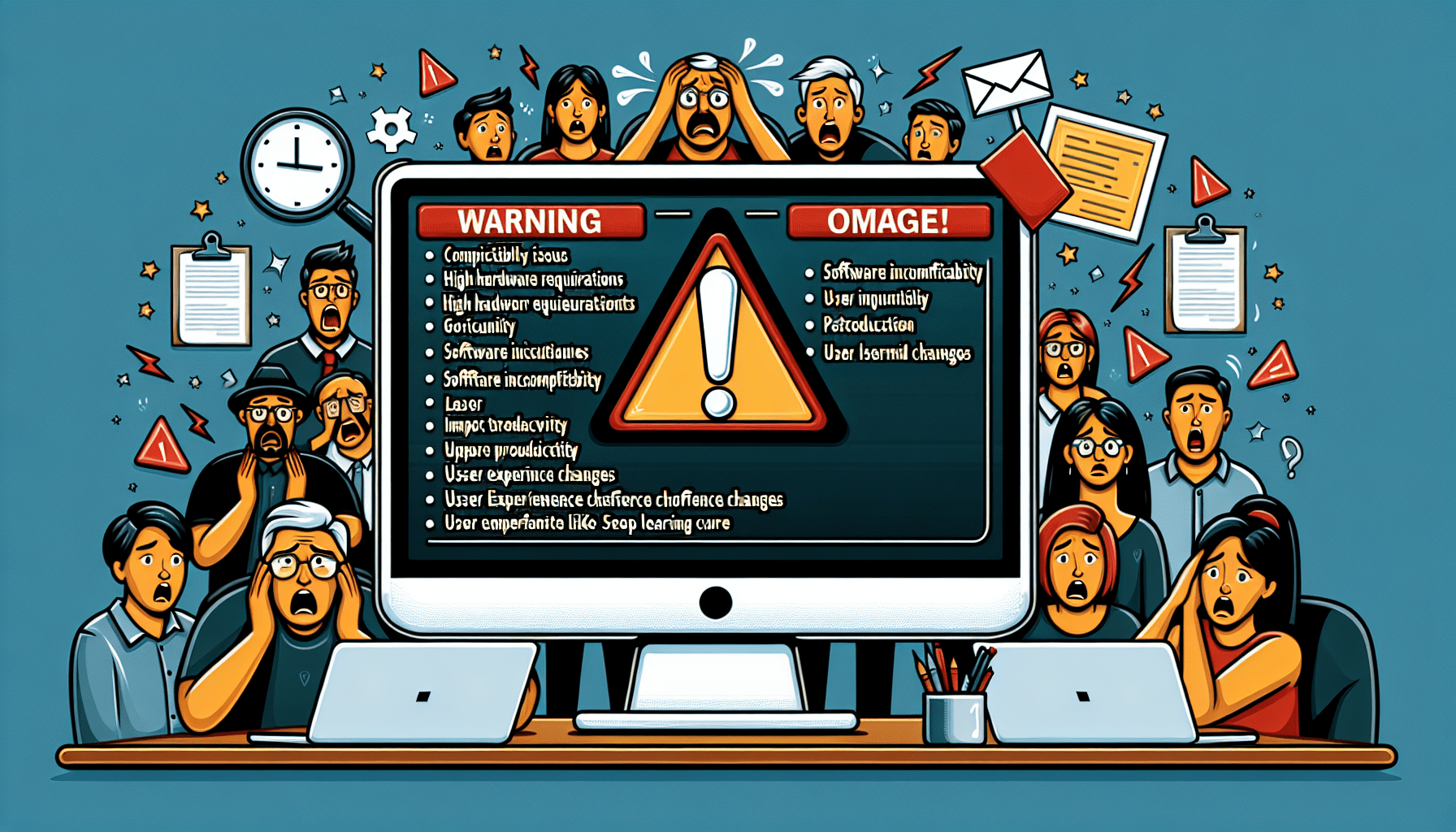







If you’ve ever wondered why your laptop fan seems to be making a non-stop humming noise, you’re not alone. This common issue can be a cause of concern, as it can impact the performance and lifespan of your laptop. In this article, we will explore the various reasons why your laptop fan may run constantly, from overheating to software issues, and provide some tips on how to address the problem. So, if you’re ready to put an end to the never-ending whirring sound, read on to find out why your laptop’s fan is working overtime.
Identifying the Symptoms
Observing the fan behavior
If you notice that your laptop fan is running constantly, it’s important to find out the underlying cause. One of the first things you can do is observe the behavior of the fan. Does it run at a consistently high speed even when you’re not performing tasks that require much processing power? If the fan is constantly working at a high speed, it could be an indication that your laptop is overheating.
Monitoring excess noise from your laptop
Another symptom to look out for is excessive noise coming from your laptop. If you hear a loud and constant whirring or buzzing sound, it’s likely that your laptop fan is running at a high speed. This is often an indication that your laptop is struggling to cool down and regulate its temperature properly.
Feeling extreme heat from the laptop
One more symptom to pay attention to is the amount of heat emanating from your laptop. If you consistently feel extreme heat when you touch the bottom or the keyboard of your laptop, it suggests that the cooling system is not effectively dissipating the heat generated by the internal components. This can result in the fan working overtime to try and cool down your laptop.
Overview of Laptop Cooling System
How a laptop’s cooling system works
Understanding how a laptop’s cooling system works can shed light on why your fan may be running constantly. Most laptops utilize heat sinks and fans to keep the internal components cool. Heat sinks help absorb and transfer heat away from important components such as the processor and graphics card. The fan, on the other hand, helps to dissipate the heat collected by the heat sink.
The role of the fan in the cooling system
The fan plays a crucial role in a laptop’s cooling system. It draws in cool air from the surroundings and directs it towards the heat sink. As the air passes through the fin-like structures of the heat sink, it absorbs the heat and carries it away. The hot air is then expelled from the laptop through vents or exhausts. If the cooling system is not functioning optimally, the fan may need to work harder and run at a higher speed to compensate for the inadequate heat dissipation.
Dealing with Overheating
Possible causes of overheating
Overheating is a common reason why laptops experience constant fan noise. There are several factors that can contribute to overheating, such as a build-up of dust and debris inside the laptop, a malfunctioning cooling system, or inadequate ventilation. Additionally, running resource-intensive applications or keeping your laptop on soft surfaces like blankets or pillows can restrict airflow and lead to overheating.
How overheating leads to constant fan noise
When your laptop overheats, it triggers the fan to run at a higher speed in an attempt to cool down the internal components. The constant fan noise is a result of the fan continuously running at this high speed to regulate the temperature. If the underlying cause of the overheating issue is not addressed, the fan will continue to run constantly, potentially causing discomfort and affecting the overall performance of your laptop.
Impact of Software
How certain applications may cause the fan to run constantly
Certain applications can put a significant strain on your laptop’s resources, leading to increased temperature and subsequent constant fan noise. Resource-intensive tasks like video editing, gaming, or running complex software can put your laptop’s cooling system to the test. These tasks require more power and produce more heat as a result, leading to the fan running at higher speeds to dissipate the excess heat.
The relationship between operating system processes and fan activity
In some cases, the operating system processes themselves can cause the fan to run constantly. Background tasks and services running in the background can consume CPU resources and generate heat. If these processes are resource-intensive or stuck in a loop, they can trigger the fan to run at a higher speed consistently, resulting in constant fan noise.
Checking System’s Processes
How to check system processes and CPU usage
To check the system processes and CPU usage, you can use the built-in task manager on your laptop. On Windows, you can open the Task Manager by pressing “Ctrl + Shift + Escape” and navigating to the “Processes” or “Performance” tab. On macOS, you can open the Activity Monitor by searching for it in Spotlight or accessing it through the Utilities folder.
Identifying high CPU usage problems
By monitoring the CPU usage in the task manager, you can identify processes or applications that are consuming a significant amount of system resources. If you notice any particular process consistently using a high percentage of the CPU, it could be a potential cause of the constant fan noise. Closing or terminating these resource-intensive tasks can help alleviate the strain on the CPU and reduce the fan noise.
Damage and Dirt in the Fan
How dust and dirt can affect your laptop fan performance
Over time, dust and dirt particles tend to accumulate inside your laptop, including in the fan blades and heat sink. This can hinder the proper functioning of the fan by blocking the airflow and reducing its cooling capacity. Consequently, the fan may need to work harder to compensate for the restricted airflow, leading to constant fan noise.
Physical damage and its impact
Physical damage to the laptop fan, such as bent blades or a misaligned fan, can also contribute to constant fan noise. Accidental drops or bumps can cause the fan assembly to get damaged, affecting its ability to spin smoothly. In such cases, the fan may produce abnormal sounds or vibrations, indicating the need for either repair or replacement.
Problems with Power Settings
How your power settings may affect your fan
Your laptop’s power settings can impact the fan’s behavior. In some cases, power settings may be set to prioritize performance over energy-saving, causing the fan to run constantly. This can be useful when performing demanding tasks, but it may not be necessary for day-to-day usage and can result in unnecessary noise and power consumption.
Adjusting power settings for optimal fan performance
To optimize your laptop’s fan performance, you can adjust the power settings. On Windows, you can access the power settings by searching for “Power Options” in the Start menu or Control Panel. On macOS, you can access the power settings through the System Preferences and Energy Saver options. By selecting power-saving or balanced modes, you can ensure that the fan only runs at higher speeds when necessary, reducing constant fan noise during regular usage.
Inadequate Ventilation
The importance of proper laptop ventilation
Proper ventilation is crucial to maintaining optimal laptop performance and avoiding constant fan noise. Laptops are designed with vents and exhausts to release hot air and allow cool air to enter. However, if these vents are obstructed or covered, airflow becomes restricted, causing the fan to work harder. Placing your laptop on flat, hard surfaces instead of soft materials or ensuring that the vents are not blocked by objects can improve ventilation and reduce fan noise.
How poor ventilation leads to continuous fan activity
When your laptop’s ventilation becomes inadequate, heat cannot dissipate efficiently, leading to overheating. As a result, your laptop fan may have to run constantly at higher speeds to compensate for the lack of proper airflow and cool down the internal components. By ensuring proper ventilation, you can help minimize the strain on the fan and reduce constant fan noise.
Malware and Virus Threats
Can malware or viruses cause a fan to run constantly?
While malware or viruses typically don’t directly cause a fan to run constantly, they can indirectly contribute to increased CPU usage and heat generation. Certain types of malware or malicious processes may run in the background and consume system resources, causing the fan to run at higher speeds to cool down the system. Additionally, malware can interfere with the operating system’s processes, leading to issues that result in constant fan noise.
Steps to check and remove potential malware or virus threats
To check for potential malware or virus threats on your laptop, it’s important to use reliable antivirus software. Perform a full system scan using the antivirus program to identify and remove any detected malware or viruses. Regularly updating your antivirus software and keeping your operating system up to date with the latest security patches can help safeguard your laptop and prevent malware-related fan noise issues.
Prevention and Maintenance
Routine maintenance tips to prevent constant fan noises
To prevent constant fan noise and maintain optimal laptop performance, it’s essential to incorporate routine maintenance practices. Cleaning the fan, heat sink, and vents regularly can remove dust and debris that can hinder proper airflow. Using compressed air or a soft brush, gently remove the accumulated dust from these components. Additionally, avoiding eating or drinking near your laptop can minimize the chances of liquids or food particles getting inside and affecting the fan’s performance.
Software and hardware practices for preventing overheating
In addition to maintenance, some software and hardware practices can help prevent overheating and reduce constant fan noise. Closing unnecessary applications and background processes can alleviate the strain on the CPU and consequently reduce heat generation. Using a laptop cooling pad or elevating the laptop to allow better airflow can also help dissipate heat. It’s also advisable to update your operating system, drivers, and applications regularly to ensure they are optimized for performance and cooling efficiency.
By understanding the various factors that can contribute to constant fan noise, you can take proactive steps to diagnose and address the issue. Regular maintenance, optimizing power settings, ensuring proper ventilation, and monitoring system processes can help alleviate constant fan noise, improve overall laptop performance, and prolong the lifespan of your device.








